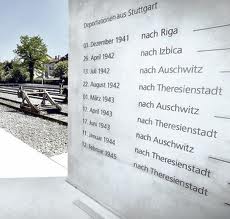If we think “they” are peculiar, “they” must think we are.
But if “they’re” doing things differently it’s worth a look, isn’t it?
Here are a few interesting anecdotes:
When there was a shortage of petrol in the Republic of
Ireland they insisted that motorists purchased a minimum amount of fuel not a maximum.
It reduced the panic buying.
The Dutch will carry cash around and leave it so it can be easily
found in a house. This stops the would-be robbers / burglars destroying you / your
home.
We use drinking chocolate as a bed-time drink. In France it’s used to wake you up in the
morning.
We try to eat “five a day”. The French try to eat “ten a
day.”
On German public transport it is customary to give up seats
to children – they’re less able to stand on swaying trams than adults.
In Holland you are rarely invited to eat at someone’s house.
Maybe for coffee and cake, or perhaps beers and snacks. For a full meal you’re invited to a
restaurant.
The Spanish rarely capitulate and speak to you in English.
The use a lot of gesture and a bloody-minded intent that you should understand.
Magically, it works.
There are probably many more examples. If you know of any,
add them to the comments.
And an aside. Lord Kerr of Kinlochard has claimed that we
need immigrants because Britons are “bloody stupid”. That’s a tad harsh. After
all, I’m not stupid and neither are you if you’re reading this even if you don’t
agree with me. However, when Martin and I went out for afternoon tea – one of
the gifts from my colleagues when I retired – every single worker except one at
the 5* hotel was from another EU state. We had excellent service. The one British worker was fine. Nevertheless,
that hasn’t always been my experience, even in 5* venues and I’ve often found myself
thinking “They need to take a trip to the continent to see how it’s done.”
Let’s learn from each other.
Remember my guy who replaced his spear with a bow and arrow?

